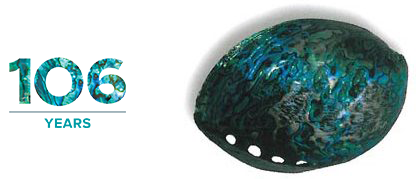Your Resources
Adoption Law Reform underway…
New Zealand’s adoption laws have not seen substantial change since 1985, and many believe that reform is needed to support the needs of children and whānau in a modern world.
The Ministry of Justice has recently completed its second round of public discussion on the suggested adoption law reform, highlighting some key issues which need to be targeted if reform is undertaken.
One of the main purposes of the law reform is to prioritise a child’s best interests during the adoption process, in line with the United Nations Convention on the Rights of the Child.
The Adoption Act 1955 has been criticised as it does not support ongoing relationships between children and their birth parents. Under current legislation, adoptive parents replace birth parents, both legally and practically. This can sometimes sever the relationship between children and birth parents where it is not in the child’s best interest.
The suggested reform aims to foster connection between the adopted persons and their birth parents where it is in the child’s best interest. It will recognise both adoptive and birth parents as the child’s legal parents, while adoptive parents will assume guardianship and financial responsibilities. This will be recognised on the child’s birth certificate.
The reform also aims to allow for contact agreements once the adoption is complete, which will help to keep children connected to their birth parents, whānau and culture.
New Zealand adoption laws have been found to be inconsistent with Crown obligations under the Treaty of Waitangi. Current legislation does not support the continuance of whakapapa, Māori identity. Further to this, our current laws do not recognise whāngai adoptions, which are open adoptions within a child’s extended family.
This means that Māori tikanga is disregarded under New Zealand adoption legislation. The suggested reform highlights the Courts’ need to explore all alternative care arrangements for Māori children, such as those within the child’s family, before determining that an adoption order is necessary. It also suggests a set of principles be outlined under the legislation, which can guide decision makers during the adoption process. The Government is proposing a separate discussion with the Māori community, which does not engage the wider public, to highlight their particular needs during law reform.
There are also concerns around the adoption process promoting secrecy. Currently, only adopted people over the age of 20 can access their original birth certificate. There is also a counselling requirement before some people are able to access their adoption information.
Under current legislation, adoptive parents can change their child’s name without the consent of the child. These limitations are set to be changed during reform, to give adopted persons a right to access personal information. The Government is also suggesting that a Judge deem a surname change appropriate before allowing it.
These are only some of the changes that the Government seeks to initiate with the adoption law reform. It is important to know your rights and the process undertaken if you are seeking an adoption order. If you are confused or need assistance with these matters, it pays to seek advice from a person with experience in the area.
Leading law firms committed to helping clients cost-effectively will have a range of fixed-price Initial Consultations to suit most people’s needs in quickly learning what their options are. At Rainey Collins we have an experienced team who can answer your questions and put you on the right track.
Please note that Rainey Collins is not contracted to provide Legal Aid, other than in the Treaty of Waitangi area. We therefore are unable to take on any Civil or Family Legal Aid work. If you require Legal Aid in those areas, you can search the list of Legal Aid lawyers on the Ministry of Justice website.







 Top
Top